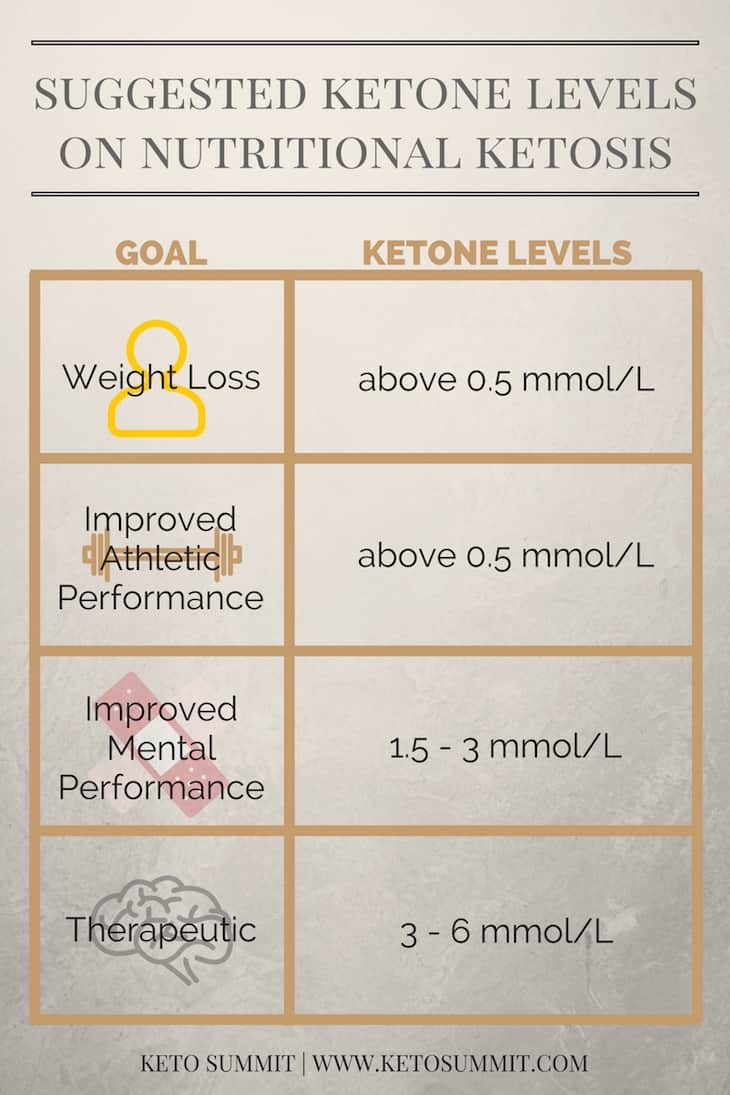curious about what others think on here about ketone levels. I’ve read that it doesn’t matter as long as your in ketosis and others say there is an optimal level for fat loss.
Does the level of ketones really matter?
I feel like some people need all the details to keep focused and motivated or they just enjoy the keeping track. Then there are others that can’t be bothered. I’m in the later camp. If I have to track macros, weight or ketones I think I would get frustrated. I think you need to decide which kind of person you are. There are tons of good markers you can look to including checking your ketones but you can also just see that you getting leaner or your happier or your appetite is changing. Find what works for you and for what your ultimate goals are. Good luck.
What is your reason for going LCHF? How long have you been doing it and what changes have you seen?
If you think it will not help you to track maybe it would be a good idea to set goals. You could give yourself a month and then test for ketones occasionally. Or you could keep trying to learn about the science and benefits so you can start tweaking your eating to fit you, your goals and your lifestyle.
If you started this believing it was a wise idea trust yourself that you are doing good.
I personally do not need a scale or numbers to know I’m doing good; all I have to do is recognize how much better I feel, how lose my clothes are and how my hunger is. But there is absolutely nothing wrong with doing it the other way if that feels right to you.
This helped me to think it through…
I don’t think it’s important. It’s a by product of what most of us want to do… burn fat (lipolysis).
Our body is constantly running a myriad of biochemical systems and making adjustments accordingly. It doesn’t need us to consciously track or measure anything. It’s like the electricity in our house. Most of us don’t think about it, we just flip a switch and expect it to go on. And most of the time it does. But when it doesn’t, we need to dig in and find out why. If you’re making adequate progress towards your goals, there’s no need to get deep into tracking. If you’re not making progress despite your effort, diving into the details may be useful in troubleshooting.
I’m not looking to track my ketones or anything I was just curious. I’ve just heard 2 sides and wondered what most people thought.
I monitor breath ketones and blood glucose because I use them to choose what to eat. I find it easier and I get better results than when I was counting macros.
It depends on what your purpose for eating a keto diet is. There are also different types of measurements.
Urine ketones are unreliable and I don’t think it makes sense to track a level there. Blood ketones are a different matter. If you are eating keto as a medically therapeutic diet such as epilepsy then it is beneficial to keep your ketones in a consistent and specific range. If you are just trying to lose weight then it doesn’t necessarily matter.
Unless as said before it matters to you…LOL
I second what @brownfat said. I find it faster, easier, and less tedious to measure BG than to count macros. And because it’s accurate and specific, the results are more actionable.
Old thread, but - I am curious too. I did not track when I started, but I am five months in and tracking. Here was today, for example:
7:00 a.m.LO
8:00 a.m.0.1
1:00 p.m.0.9
4:30 p.m.0.4
There seem to be two schools of thought. One is that your ketones drop as your body learn how to use them. However, in the chart above, optimal nutritional ketosis is 1.5 to 3.00. And for Alzheimer’s, motor neuron disease, epilepsy, etc., it is recommended to stay at least at 3. Well, if your body stops wasting ketones, how do you stay at the higher readings?







